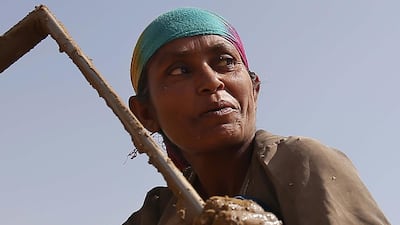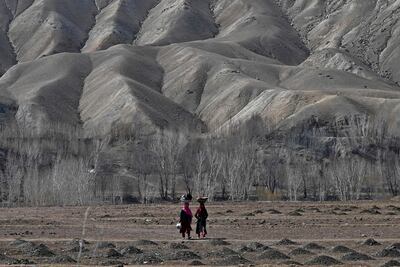International Women's Day, which has been marked for the past 110 years, is an occasion to celebrate the progress that has been made around the world towards narrowing the gender gap, particularly here in the UAE. But as the dust thrown up by the pandemic starts to settle, a new world is taking shape, formed by the huge upheaval of Covid-19. We must also reflect on how the tumult of the past year affected women around the globe.
Women appear to have been disproportionately affected by the virus. Last week, The National reported on PwC's Women in Work Index and the company's fears of an emerging "she-cession" in the UK jobs market. The firm predicted that levels of gender parity in the OECD – an organisation representing 37 leading free-market economies – which have otherwise been increasing year on year, will fall back to 2017 levels in 2021.
Pandemics have always been particularly damaging to women's interests. Last April, the UN Secretary General, Antonio Guterres, called for an end to the horrifying rise in domestic violence against women during lockdowns. In the Middle East, the research network Arab Barometer recorded huge rises in perceived violence against women, as high as 63 per cent in Tunisia and 27 per cent in Jordan.
Surveys in the US and UK have also suggested that care burdens at home have been primarily borne by women, leading to a disproportionately high number of female carers reducing their work hours, or leaving jobs altogether, compared to men.
Societies cannot tolerate a scenario in which women, already chasing parity with men in the workplace before the pandemic, start carrying yet heavier burdens after Covid-19. If this moral argument fails to convince all fully, there are also huge financial incentives to addressing this historic imbalance. PwC's report estimates a $6 trillion boost to the GDP of the OECD if future levels of female employment match ones currently found in Sweden, a consistent leader in the field.
One country that is building foundations towards this end is the UAE. Whether guaranteeing equal pay for men and women in 2018, or introducing three months' paid maternity leave for government employees the following year, the government has taken the lead in trying to create a fair system, wherein both men and women can succeed. The results are for all to see: in 2019, it was reported that 53 per cent of the UAE's total workforce consisted of women and today 66 per cent of government jobs are held by them.
Acknowledging emerging divisions in today's new reality is imperative. More optimistic, and not measured by statistics, has been the major collaboration between men and women that allowed us all to pull through the worst of the past year. Addressing specifically gender imbalances is not, as some believe, forgetting the many men also left behind by the virus. It is instead an endeavour that will strengthen us all, men and women, as we emerge dazed but determined into recovery.



